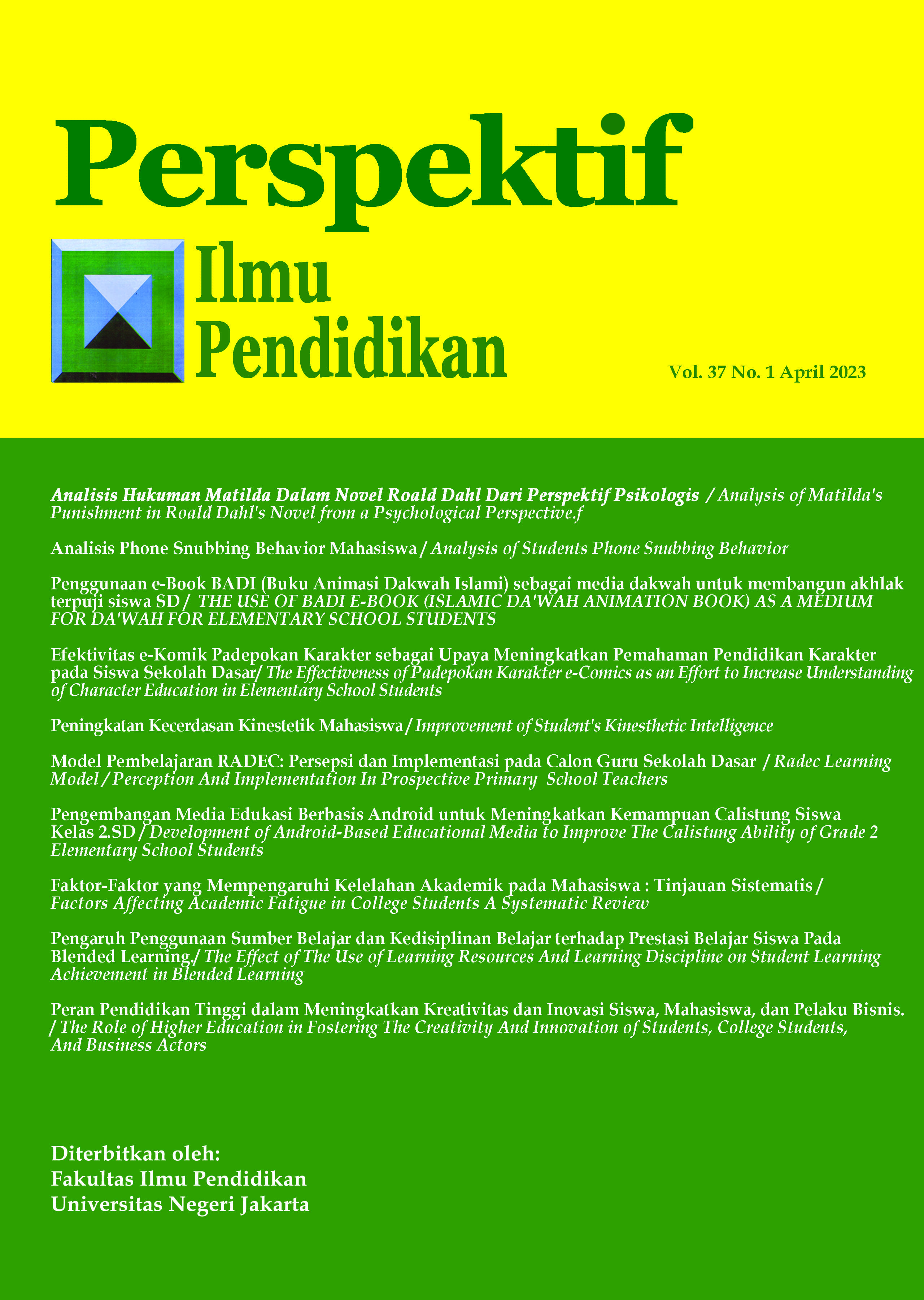Analysis On Matilda’s Punishments In Roald Dahl’s Novel From Psychological Perspective
DOI:
https://doi.org/10.21009/PIP.371.1Keywords:
characterization, children’s literature, children development, psychological needs, psychoanalysisAbstract
Roald Dahl's novel Matilda features a child with a strong penchant for punishing adults. Using Erikson’s concept of children’s development, the present study aimed to explain why Matilda was described as a five-year-old girl to perform those punishments. Through textual analysis, the present study revealed that Matilda developed as a girl who administered punishments to adults around her as part of her development at the play age. At this age, a child learns to set specific goals and plan to achieve them. In the novel, this development is reflected in Matilda Wormwood’s goal to punish her father as described in chapters “The Hat and the Superglue,” “The Ghost,” and “The Platinum-Blonde Man.” Matilda’s punishments in this novel send a strong message to readers that parents should provide good examples and sufficient attention to their children when they start learning to set goals, especially when they are very intelligent and have strong potential like Matilda.
Downloads
Published
How to Cite
Issue
Section
License
Authors who publish with this Journal agree to the following terms:
- Author retain copyright and grant the journal right of first publication with the work simultaneously licensed under a creative commons attribution licensethat allow others to share the work within an acknowledgement of the work’s authorship and initial publication of this journal.
- Authors are able to enter into separate, additional contractual arrangementfor the non-exclusive distribution of the journal’s published version of the work (e.g. acknowledgement of its initial publication in this journal).
- Authors are permitted and encouraged to post their work online(e.g. in institutional repositories or on their websites) prior to and during the submission process, as it can lead to productive exchanges, as well as earlier and greater citation of published works.
-
Users/public use of this website will be licensed to CC BY-NC-SA Creative Commons Attribution-NonCommercial-ShareAlike 4.0 International License












